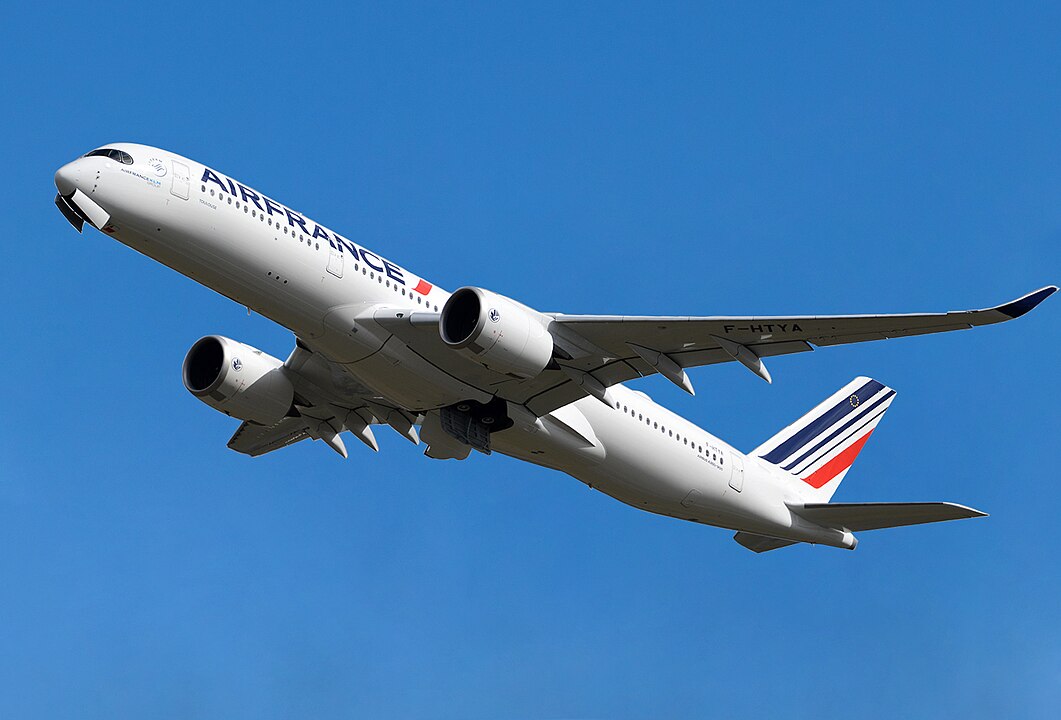The French government is preparing to introduce significant aviation tax increases in 2025 as part of its efforts to reform the industry. According to reports from Les Échos, the new plan will target the aviation sector, raising the solidarity tax (TSBA) and potentially tripling current revenue. The France aviation tax increases aim to collect over €1 billion ($1.1 billion), a substantial jump from the current €460 million ($508 million) raised annually.
Breakdown of the 2025 Aviation Tax Increases
The TSBA, which was originally introduced in 2006 during the presidency of Jacques Chirac, specifically impacts the aviation industry by levying a tax on individual flight tickets. The proposed new rates vary based on flight distance:
Join us on TELEGRAM for the Latest Aviation Updates fresh to your phone.
| Distance | New Tax (Per Passenger) |
|---|---|
| 0-1000km (Including Overseas France) | Undecided |
| 1000-5000km | €42 (economy), €100 (business) |
| Over 5000km | €60 (economy), €200 (business), €3000 (private jets) |
For context, economy class tickets on flights exceeding 5000km currently carry a tax of only €7.51 per passenger. These tax increases in France’s aviation industry will significantly raise the cost of flying, especially on long-haul flights, making trips from France to the US and other destinations much more expensive.
Impact of France’s Aviation Tax Increases on Intra-European Flights

In addition to long-haul flights, France is also considering raising taxes on intra-European flights. This move is intended to affect low-cost airlines, which would lead to an increase in ticket prices across all segments of the market, not just for medium and long-haul flights.
For domestic flights under 1000km, however, the government remains undecided. It had initially considered avoiding further regulation of these routes due to the existing high tax burden—taxes already account for approximately 40% of the ticket price on domestic flights. The government briefly floated the idea of increasing VAT from 10% to 20%, but that option was later scrapped.
Effects on US Airlines Due to France’s Aviation Tax Increases
The proposed tax increases will heavily impact not just French carriers like Air France, but also international players such as the “big three” US airlines: American Airlines, United Airlines, and Delta Air Lines. These airlines operate multiple routes between France and the United States, including:
- United Airlines: Routes from Paris to Newark (EWR) and Chicago (ORD)
- Delta Air Lines: Routes from Paris to New York (JFK) and Minneapolis-Saint Paul (MSP)
- American Airlines: Routes from Paris to New York (JFK) and Dallas Fort Worth (DFW)
On these routes, 17% of the ticket price is currently attributed to taxes and fees. This contrasts with nearly 40% for domestic French flights. Nevertheless, the new tax proposals are expected to increase ticket prices further, as airlines are likely to pass on the added costs to consumers.

Industry Backlash
The France aviation tax increases in 2025 have been met with fierce opposition from within the aviation industry. Airlines for Europe (A4E) and Airports Council International (ACI), representing European airlines and airports, jointly expressed their strong disapproval. In a statement, the groups accused the French government of harming the aviation sector as a “quick fix” to tackle its growing national debt.
Ourania Georgoutsakou, Managing Director of A4E, voiced concerns about the broader implications of the tax increase:
“This proposal to increase French aviation taxes would be counterproductive, would fragment the single aviation market, and would undermine the competitiveness of French aviation. Any short-term revenue gains the government expects would be far outweighed by reduced connectivity, poorer consumer welfare, and a setback in aviation’s decarbonization efforts.”
A Step Back for France’s Aviation Industry?
The proposed France aviation tax increases in 2025 come on the heels of France hosting the 2024 Paris Olympics, a time when many expected the nation to boost its aviation sector. Instead, these new measures may undermine the industry’s competitiveness and impede progress toward reducing carbon emissions by diverting crucial investment funds away from decarbonization efforts.
As the debate continues, France’s aviation sector is left grappling with the potential fallout from the proposed changes. With the aviation industry already burdened by high operating costs, the additional taxes could have far-reaching effects on airlines, passengers, and the broader economy.
Sources:
- Featured image By Leaderofthewave
- Simple Flying
Youssef Yahya is the CEO and Founder of Aviation for Aviators. He also serves as the Chief-in-Editor of the platform’s website, where he shares his passion for aviation and provides valuable resources for aviation enthusiasts and professionals alike. His love for aviation and entrepreneurial spirit drive him to create innovative solutions, making Aviation for Aviators a unique resource in the aviation sector.
You might also like:
- De-icing Airplanes
- The Miracle in the Hudson
- Donald Trump Departs Pennsylvania on Boeing 757 After Hospitalization
- QATAR A380’S. WHAT HAPPENS NOW?
- Concorde: the Supersonic Airliner, and Why did it Stop Flying?
Discover more from Aviation for Aviators
Subscribe to get the latest posts sent to your email.

